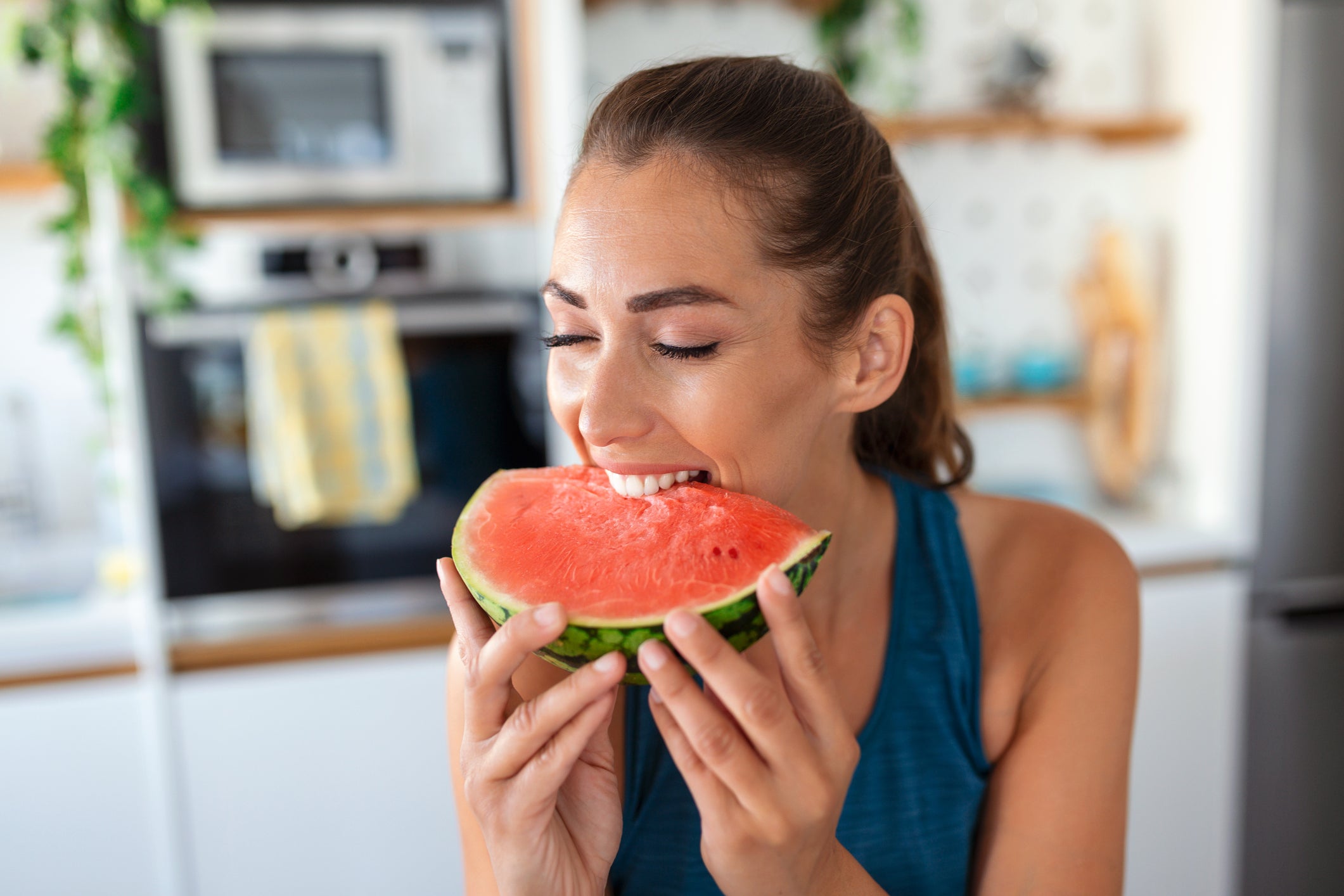Eat these five foods if you don’t want to bloat

Feeling bloated and uncomfortable? Nearly one in seven Americans share that experience on a weekly basis, according to doctors.
Oftentimes, the problem is extra gas in our digestive tract.
“Poop is just sitting there, fermenting, and making its presence known,” registered dietitian Beth Czerwony told the Cleveland Clinic.
Sometimes, it’s because we’ve scarfed down a super burrito or have intolerance to certain foods. However, it can also be a sign of something more serious, such as irritable bowel syndrome or chronic constipation.
The bloat should ease within a few hours to a few days. But, stocking the pantry and fridge with certain foods can provide sweet relief.

Sweet potatoes
Sweet potatoes are a fall staple that are high in fiber and better for you than regular potatoes.
Fiber-rich foods aid digestion and help you not to get backed up.
The vegetable has four grams per spud and is also a great source of potassium.
Watermelon
Fiber isn’t the only secret to reducing bloat. Hydrating fruits like watermelon can also keep your digestive system running right.
Keeping your body properly hydrated softens poop.
“If your poop is dry and hard, it’s a lot tougher to push out,” said Czerwony.

Celery
Celery is the best of both worlds.
While watermelon is 90 percent water, celery has 95 percent.
The stalks also contain 0.64 grams of fiber, according to the University of Rochester Medical Center.
The vegetable may be a good alternative to other veggie snack foods that commonly cause bloating, like broccoli and cauliflower, according to UCLA Health.
Yogurt
Yogurt is packed with good bacteria called probiotics that help aid digestion.
Probiotics are also found in fermented foods, like kimchi, kombucha, and sauerkraut.
You can put some fruit in it for a sweet treat. But, be sure to avoid fruits that are high in bloat-causing fructose, Mayo Clinic advises, such as peaches and apples.
Pineapple
There’s a protein found in pineapple called bromelain that also aids digestion.
It breaks down other proteins in the food moving through your system, softening up what’s tough to digest.
If you’re not into pineapple, however, papaya has its own enzyme that works similarly.
[title_words_as_hashtags




